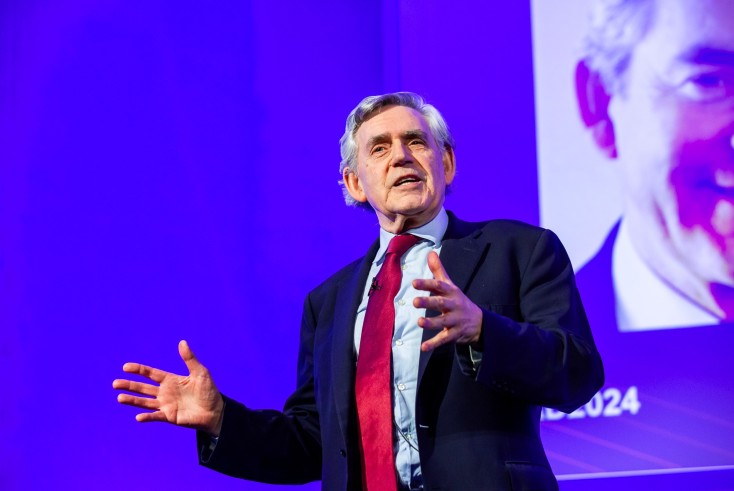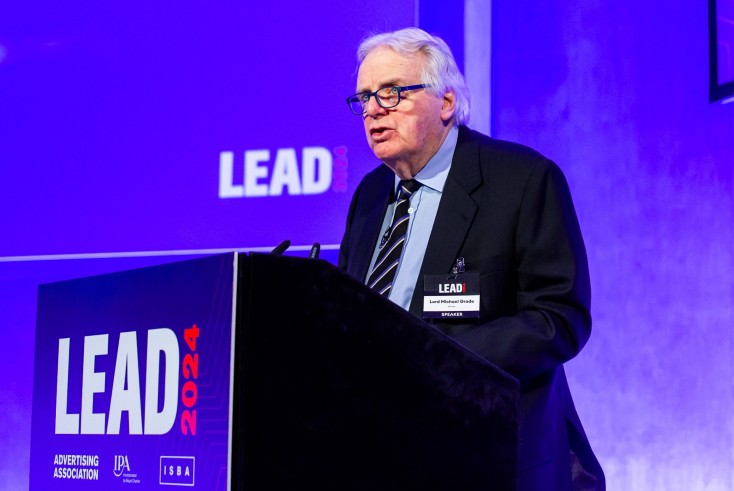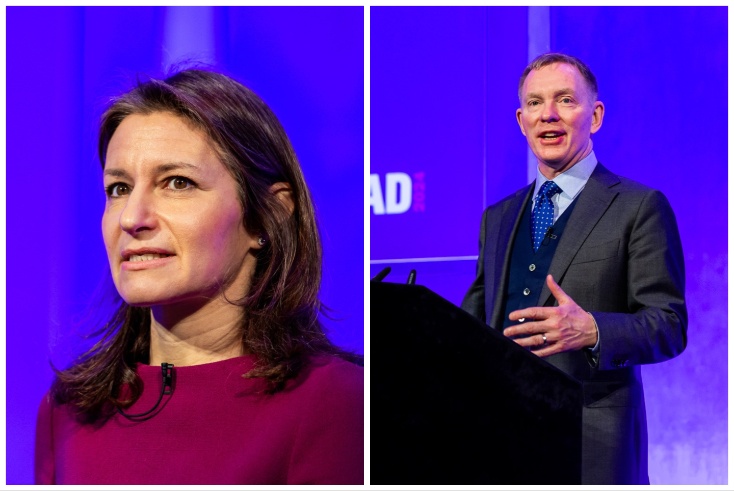Gordon Brown: Media and advertising play a key role in addressing poverty

LEAD 2024
“We are now seeing poverty in this country that I never thought I would see again in my lifetime.”
Former prime minister Gordon Brown addressed a packed crowd at Thursday’s LEAD conference, hosted by the Advertising Association, Isba and the IPA, imploring the audience to push businesses to help address the sharp rise in poverty across the UK and especially in the north.
Echoing themes expressed in an op-ed in Thursday’s The Guardian, Brown said the UK has a “blind spot” when it comes to poverty, even as the social safety net “has gone” amid years of austerity measures and increased prices for goods and services. He noted that, today, working families are finding it impossible to make ends meet.
“My concern is that poverty is not an issue that people want to talk about,” he lamented. “It is now a part of the furniture.”
Brown asked the advertising and media industries to be more active in pushing businesses to help charities and support “multibanks“.
Noting the success of ITV’s Mr Bates vs The Post Office as a recent example of the media helping to drive real change, Brown also said the industry can do more to shine a light on the seriousness of poverty. When the public becomes conscious of such issues, he said, they get “angry”, leading to swift policy change.
Grade: Be proactive on online safety
Brown was not the only major political figure to speak at LEAD. Ofcom chair Lord Grade also outlined how the broadcast regulator is in the process of implementing the recently passed Online Safety Act.
Grade (pictured below) had a message to marketers as well as agency planners and buyers: “Online safety is happening now and you have a chance to play your part — by getting ahead of the harm.”

He noted that too often brands reactively remove adspend from harmful and brand-unsafe locations online, but advertisers should get ahead of such issues by taking action before scandals surface.
Indeed, Grade asked marketers to consider whether their online adspend “isn’t damaging your valuable brands by being ‘algorithmed’ alongside harmful, horrible content”.
Grade expressed optimism that tech companies will comply with regulations once they are fully implemented. He argued that there was a competitive advantage in prioritising user safety in the long term and, if that carrot is not enough incentive, fines by Ofcom for lack of compliance will be the stick.
And, Grade stressed, advertisers have a responsibility to hold tech platforms to account by voting with their feet to avoid their own brands appearing next to hateful content.
Frazer and Bryant show support for creative industries
Culture secretary Lucy Frazer (pictured below, left) and shadow minister for creative industries and digital Chris Bryant (pictured below, right) gave speeches in which they expressed the importance of the culture industry in leading the British economy.
Both agreed more investment needs to be made in attracting young talent to the media and advertising sector, such as through reforming apprenticeship programmes to benefit creative industries.
Bryant said that if the advertising and media sector is to grow, this career needs to be made possible for everyone, including those outside major metropolitan areas like London. Furthermore, liberal arts degrees must stop being “denigrated”, he argued, so that people feel prouder to pursue careers in industries like media and advertising.
Where Frazer and Bryant diverged more significantly was on the topic of AI. Frazer gave a considerably more positive spin, noting that advertising is “leading the way” in the use of AI for improved efficiency and creative opportunities.
“We want to harness the benefits of AI to spur growth,” she added, although she noted that the government is “looking closely” at how to ensure creators can retain control over their intellectual property.

Bryant stressed the importance of artists’ rights in his speech, expressing severe concern over how artists and authors have been remunerated in the age of streaming and, now, AI.
“We need to take artificial intelligence seriously,” he said. “We need to ensure artists and authors are able to exercise their economic and moral rights over their work before they’re scraped [by AI crawlers].”
He also bemoaned the loss of “serendipity” in a media environment that algorithmically recommends content it expects individuals to enjoy, rather than allowing for more organic discovery.
In his most overtly political statement of the morning, Bryant took a direct jab at the Conservative party, noting that Frazer is the 12th culture secretary in 14 years under Tory leadership. “We need continuity and stability,” he said.
All pictures by Bronac McNeill



